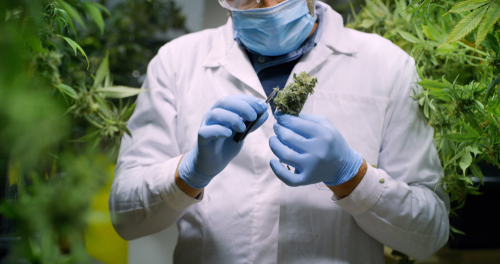The U.S. House of Representatives passed legislation designed to streamline the application process for marijuana researchers and remove FDA barriers to encourage research on marijuana.

The bill — the Medical Marijuana and Cannabidiol Research Expansion Act – passed in the house with 325 votes.
“Research is a foundational element for cannabis policy,” Rep. Earl Blumenauer (D-OR), one of the billʻs sponsors and co-chair of the Congressional Cannabis Caucus, said. “At a time when there are four million registered medical marijuana patients and many more likely to self-medicate, it is crucial that researchers are able to fully study the health benefits of cannabis. For too long, the federal government has stood in the way of science and progress, creating barriers for researchers obtaining resources and approval to study cannabis. This bipartisan, bicameral legislation is an important first step to changing that.”
It was also sponsored by U.S. Rep. Andy Harris (R-MD).
“As a physician who has conducted NIH-sponsored research, I am pleased that this bill has finally passed and that scientists will be able to research what medical marijuana can and cannot do. While there is evidence to suggest that medical marijuana may be beneficial in the treatment of some diseases like glaucoma and epilepsy, only scientific research will prove the veracity of the many claims regarding efficacy for other diseases. Despite lacking much scientific research, over three dozen states have already legalized medical marijuana, and the American public deserves to know the effect modern marijuana has on the human body. While I support additional research for the use of medical marijuana, my position on recreational marijuana remains the same – I categorically oppose it,” Harris said.
The bill now moves to the Senate for a vote. U.S. Sens. Dianne Feinstein (D-CA), Chuck Grassley (R-IA), and Brian Schatz (D-HI) are among those who are in favor of its passage.
“The medical community agrees that we need more research to learn about marijuana’s potential health benefits, but our federal laws today are standing in the way of us finding those answers,” Schatz said. “We are now one step closer to removing excessive barriers that make it difficult for researchers to study the effectiveness and safety of marijuana, and hopefully, give patients more treatment options.”